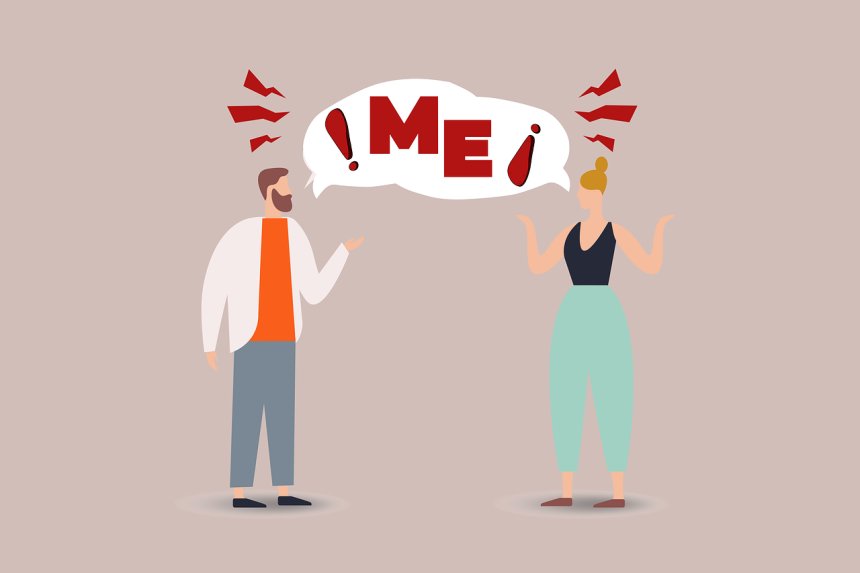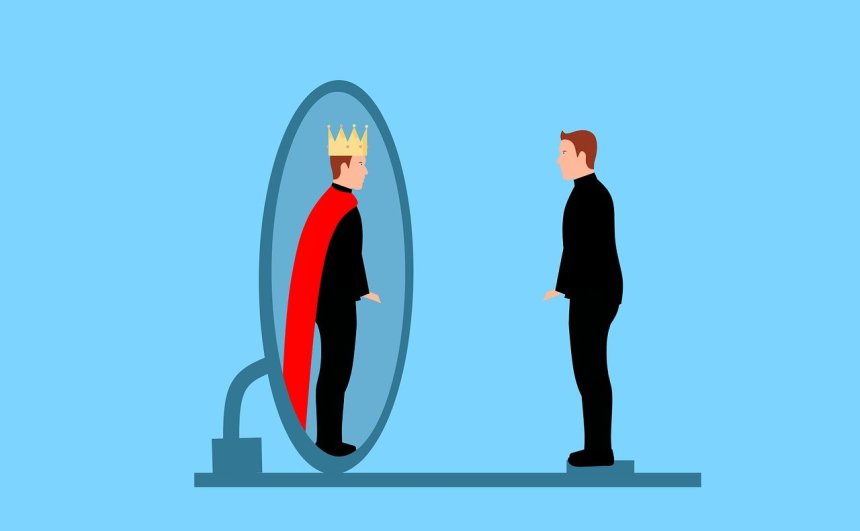What Happens When Two Narcissists Are Partners?
Discover what happens when two narcissists are in a relationship, exploring their power struggles, emotional dynamics, and why these intense connections rarely last.

It's hardly a conventional love story when two narcissists fall in love. What starts off as a strong, magnetic attraction can quickly evolve into a huge fight over egos, control, and emotional chaos.
When two narcissists are in a relationship, it can be as if they are engaged in a battle with mirrors reflecting their own vanity, insecurity, and desire for admiration. It's a love based on lies and power, not on understanding or feeling close to each other.
This post will discuss the dynamics that arise when two narcissists unite, the reasons behind their attraction, and the typical trajectory of their relationship.

What Is Narcissism in a Relationship?
A narcissistic personality is one that is too focused on themselves, needs a lot of praise, and doesn't care about other people. A narcissistic person in a relationship frequently puts their own needs first, perceives their partner as an extension of themselves, and needs continual approval.
Narcissists seem confident and charming, but they're often insecure and afraid to be vulnerable. This mismatch can make it hard to be around them because they often manipulate events to keep control and boost their ego.
Why Two Narcissists Are Drawn to Each Other
It might seem unusual at first that two people who are only interested in themselves could become friends. But in truth, narcissists are typically drawn to each other because they reflect what they want most: adulation, status, and affirmation.
Both partners see their grandiosity in the other person. They like how confident, ambitious, and charming each other is. Together, they make it seem like they are a "power couple"—glamorous on the outside but weak on the inside.
But this attraction doesn't last very long. When one partner's ego is wounded, admiration evolves into competitiveness. The desire to be perceived as superior rapidly supplants any feelings of mutual respect or attachment.

The Power Struggle Between Two Narcissists
When both couples want to be the focus of attention, there will be problems. A power struggle rapidly starts as each person seeks to control the other emotionally, socially, or intellectually.
Both narcissists want to be in charge, lead, and be better than the other. Affection and compliments can be used to control others. Every dispute turns into a fight to see who is better instead of trying to understand each other.
This constant rivalry can make you tired and angry. Both partners perceive each other as rivals in a relationship that lives on drama more than love. They don't work together as a team.
The Love-Bombing and Devaluation Cycle
A relationship between two narcissists usually goes through a predictable cycle of love-bombing and devaluation, just like most narcissistic relationships.
At first, both spouses think the other is perfect. They give each other a lot of love, attention, and praise, and they both get a boost from the other person's praise. The relationship feels amazing and intense.
But after a while, the admiration goes away. The attributes that once drew people in, including confidence, dominance, or independence, now make them feel scared. Each person starts to make the other feel less valuable by criticizing, undermining, or emotionally withdrawing to take back control.
This back-and-forth can go on for months or even years, leaving both people feeling tired, angry, and unfulfilled.

Emotional Impact of a Narcissist–Narcissist Relationship
When two narcissists are in a relationship, it often doesn't have much emotional depth. To be truly close to someone, you need to be able to empathize, be vulnerable, and trust them. Narcissists have a hard time doing these things.
Both partners fail to listen to or meet each other's emotional needs because they are both focused on themselves. Instead, people talk on their looks, accomplishments, or social standing. Instead of being a partnership, the relationship becomes a performance.
The emotional emptiness gets bigger as time goes on. What is left is a persistent feeling of emptiness that is hidden by pride, blame, and shallow connections.
Can Two Narcissists Have a Lasting Relationship?
Some narcissistic couples do stay together for years, but this is not common. Their relationship generally lasts because it satisfies both of their interests, such status, convenience, or a common goal.
In these situations, both spouses agree without saying anything to keep up the appearance of a wonderful relationship. They might not get emotionally close, but they might stay together for the sake of appearances or mutual profit.
But durable peace is not likely. When adoration develops into competitiveness or control becomes too much, one or both spouses look for affirmation in other places. The foundation will eventually fall apart if there isn't a real emotional connection.

How the Relationship Usually Ends
When two narcissists break up, it almost never ends well. Each couple blames the other for the breakup and won't admit to their own mistakes.
At the end, there is typically betrayal, manipulation, and revenge. One spouse may suddenly break up with the other in search of new adulation, while the other responds with criticism or emotional warfare.
In the end, the breakup is just another method to show who's better. Aftermaths are usually full of anger, denial, and a demand for validation that hasn't been met.
Healing and Self-Reflection After a Narcissistic Relationship
Narcissists might feel pain after a breakup, but they often hide it under hostility or indifference. Healing starts when one or both partners admit that the relationship was toxic in some way.
It's essential to think about yourself. Recognizing the emotional tendencies of control, manipulation, or fear of being vulnerable might help you break the loop. People can reconnect with empathy and their real emotional needs through therapy, mindfulness, or self-awareness activities.
When someone stops looking for approval from others and starts finding it in themselves, they really grow. That's when the cycle of narcissistic relationships finally ends.

Conclusion
When two narcissists come together, they build a universe where they admire, control, and compete with each other. What starts out as passion and perfection often ends in anger and feeling empty.
These partnerships convey an important lesson: love can't grow without empathy. The relentless urge to win, prove, and be the best doesn't leave any place for vulnerability, which is the real basis of closeness.
The first step to getting better is to see these trends. Self-awareness can help you end the cycle, whether you've been in a relationship with a narcissist or see narcissistic traits in yourself. Real love doesn't start with control or competitiveness; it starts with kindness and being honest about your feelings.
Frequently Asked Questions (FAQs)
Is it possible for narcissists to love each other?
Narcissists can feel love and attachment, but their love is generally based on how well their partner makes them feel positive about themselves. It's true that unselfish love needs empathy, which is something they don't always have.
Do two narcissists ever stay together long-term?
Some do, but usually for strategic reasons like making money, improving their public image, or working toward a common goal. But the emotional connection is still weak and shallow.
What happens when one narcissist changes?
When one spouse starts to recover or think about themselves, the relationship generally ends. The power balance changes, which makes things awkward for the spouse who hasn't healed yet.
Why are narcissistic relationships so addictive?
They are emotionally intense and unpredictable, with strong highs and lows that are similar to addiction. It's hard to walk away because of how strong these feelings are.
Share
What's Your Reaction?
 Like
0
Like
0
 Dislike
0
Dislike
0
 Love
0
Love
0
 Funny
0
Funny
0
 Angry
0
Angry
0
 Sad
0
Sad
0
 Wow
0
Wow
0














